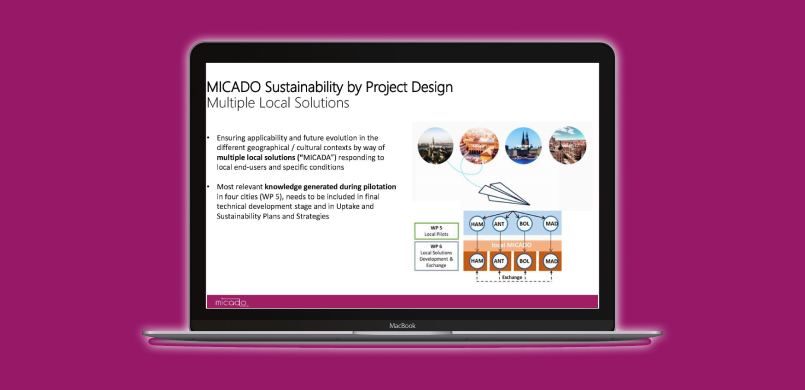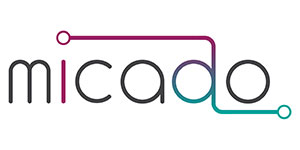
22 Oct 2nd Migration Policy Roundtable – 22 October 2021
On the 21st and 22nd of October 2021 MICADO joined the 2nd Migration Policy Roundtable that had been organized in collaboration with the sister projects EASYRIGHTS, MIICT, WELCOME, MICADO, NADINE, REBUILD.
Since many of the sister projects are already in the final months of the project cycle, the policy roundtable was centred on the topics of exploitation of project outputs and the development of strategies to ensure sustainability of ICT solutions.
On the first day, partners presented the service design and social integration tools they developed in the course of their projects. The event provided a great opportunity for partners to compare different approaches, which all aim to reach the same goal: Addressing the challenge of migrant integration through ICT-enabled solutions. The event highlighted the diversity of approaches and the importance of developing ICT tools in close collaboration with end-users. These solutions can be offered on the level of cities, regions or on the national level, depending on the existing local context and delegation of responsibilities of service delivery.
The second day was dedicated to the topic of sustainability of solutions for the social integration of migrants. In the different session the partners shared their lessons learned and provided insights into their strategies for making available their services after the projects end. As highlighted in the different sessions, despite the general agreement on the advantages of using ICT tools to facilitate migrants’ integration to public administrations, NGOs and migrants, there are some hurdles to overcome to ensure successful uptake of ICT solutions developed in the respective projects. Key questions regard the responsibility of maintaining and updating ICT infrastructure as well as the administering and updating of content shared on the platforms and apps.
The 200+ participants of the Policy Roundtable were made up of a diverse group of researchers, representatives of international organizations (such as IOM, UNHCR and the European Commission), non-governmental organizations (such as the Red Cross) and municipalities.
Partners are currently working on a handbook which summarizes the main findings of the event. The handbook will be available publicly and we will share more details on our website shortly.
In case you missed the event, all presentations are available under the following link:
